Night Stalker rapist: Delroy Grant guilty
- Published
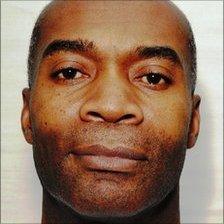
Delroy Grant denied 29 charges including rape and sexual assault
A man has been branded one of the most prolific and depraved sex attackers in British history after being convicted of a string of assaults.
Dubbed the Night Stalker, Delroy Grant, 53, raped and assaulted elderly victims over a period of 17 years in south London, Kent and Surrey.
Police said he was responsible for some of the most "awful and disturbing crimes" in Scotland Yard's history.
But they also apologised for missing chances which could have stopped him.
Police have linked Grant to incidents involving 203 separate surviving victims - but fear his actual number of victims could be as many as 600.
They think many of his victims may have died without reporting what had happened.
Det Ch Insp Colin Sutton, from the Metropolitan Police (Met), said: "Officially we have looked at 203 offences but my guess would be you could probably double or treble that number."
'Callous pervert'
Commander Simon Foy, head of the Met's homicide and serious crime command, said: "We are deeply sorry for the trauma suffered by all those victims and our failure to bring Grant to justice earlier."
The police chief branded Grant a "perverted, callous and violent individual" who attacked some of the most vulnerable people in society.
Grant, of Honor Oak, south London, denied 29 charges, including burglary, rape and sexual assault, between 1992 and 2009, at Woolwich Crown Court.
The father of at least eight children and full-time carer for his estranged wife Jennifer, who has multiple sclerosis, targeted vulnerable elderly people in their homes at night.
The attacks took place in Warlingham, Shirley, Beckenham, Bromley, Addiscombe, Orpington and West Dulwich.
Incidents investigated as part of Operation Minstead
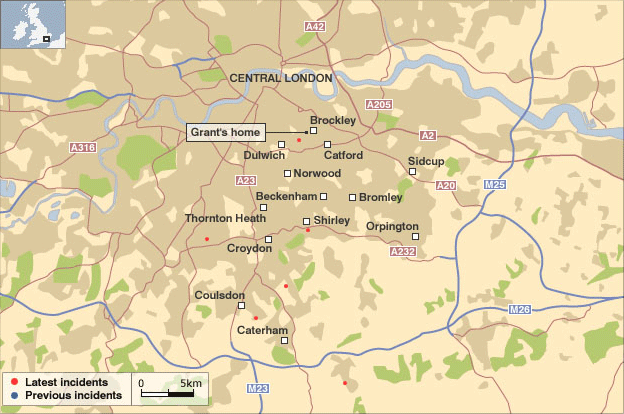

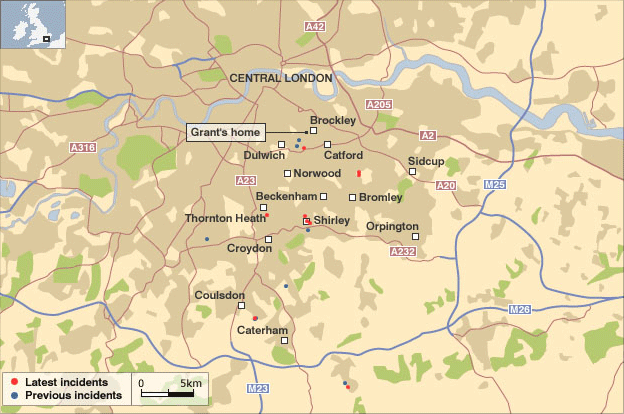
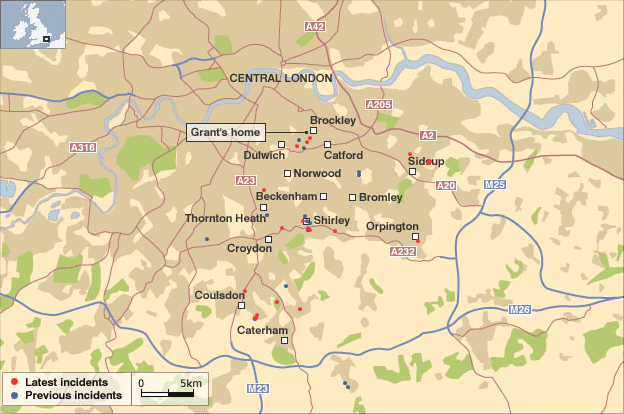
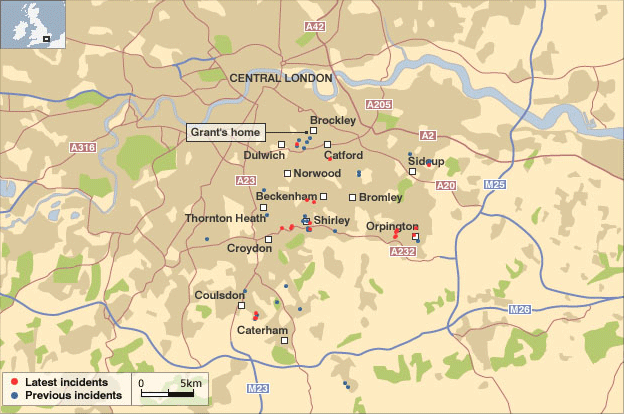
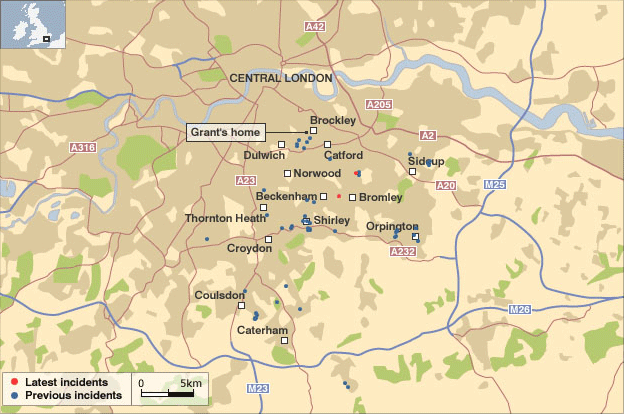
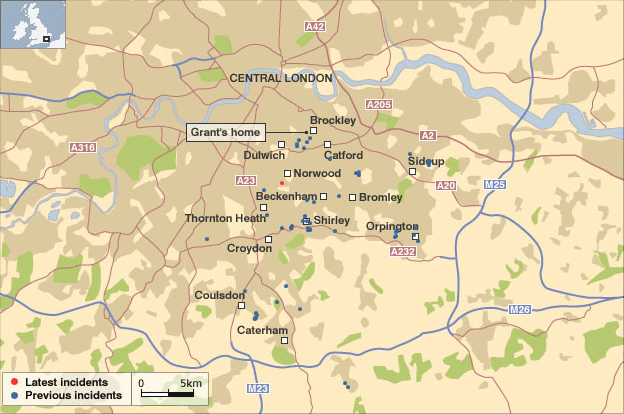
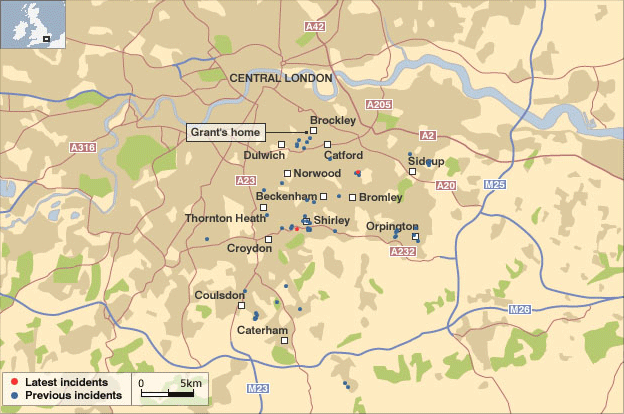
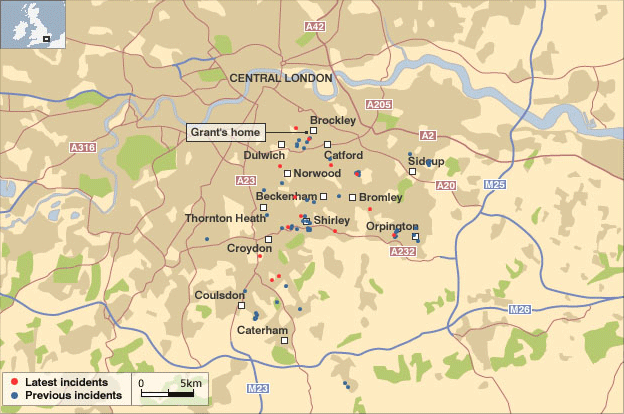
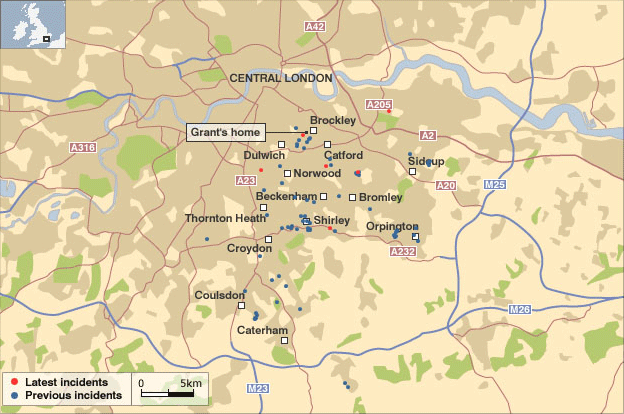
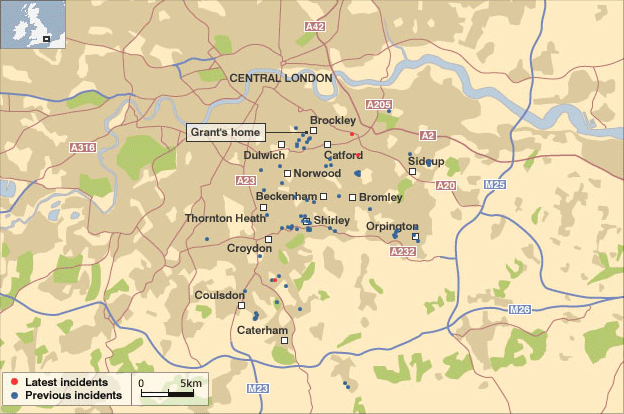
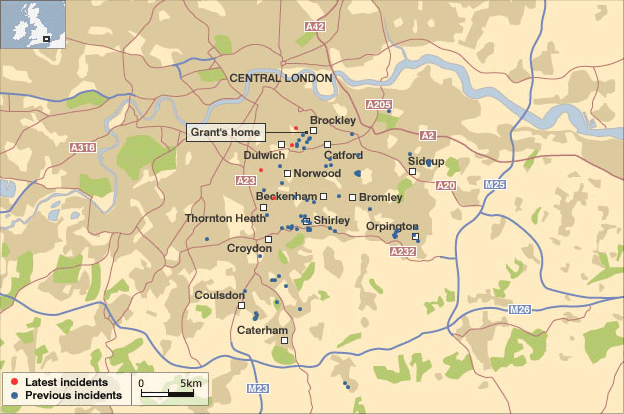
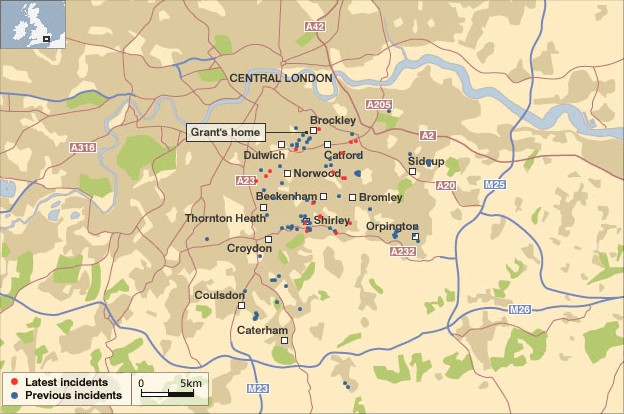
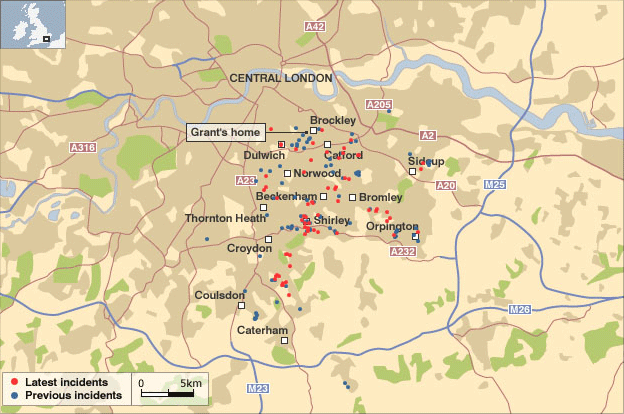
Officers had been hunting the Night Stalker, under the codename Operation Minstead, since 1998 when two rapes were linked to the same attacker.
Police missed a key chance to stop Grant in 1999 because of a paperwork blunder, it can now be revealed.
He was mistakenly ruled out of a police inquiry when the DNA of another suspect with a similar name was confused with his.
An officer also visited Grant's home but, after finding he was not there, never returned to speak to him.
An Independent Police Complaints Commission (IPCC) investigation found that confusion by the Met over a suspect and a poor response to a burglary led to them failing to arrest the serial sex attacker sooner.
IPCC Commissioner for London Deborah Glass said: "It is clear that a simple misunderstanding had horrific consequences.
"Police missed the opportunity because confusion led to the wrong man's DNA being compared."
Three Scotland Yard officers have faced misconduct proceedings over the botched investigation into one of Grant's burglaries.
Crown Prosecution Service lawyer Andrew Hadik said: "The bravery of Grant's victims, who had to relive their ordeal while giving statements to the police and assisting with the investigation, was pivotal in bringing him to justice.
WATCH: The background to the Night Stalker case
"We thank them for their courage and for helping to put an end to Grant's crimes."
Grant was found guilty of raping an 89-year-old woman after breaking into her home in 1992.
He also carried out the brutal sex attack of an 81-year-old woman in Warlingham in 1998.
The convictions bring to a close a massive manhunt that cost tens of millions of pounds and involved hundreds of officers.
Mr Foy added: "He was also feared by many people living in the same communities and it is not too dramatic to say when he was caught, thousands of people in the South East were able to switch out their lights and go to sleep without the dreadful thought they would be preyed upon by Grant."
'Humiliating' assaults
Masked sexual predator Grant preyed on frail men and women in south London and violated them in their homes, sometimes for several hours.
Many of his victims were blind, deaf or had conditions including Alzheimer's and Parkinson's disease.

A crowbar used to break in to a house was found in the boot of Delroy Grant's Zafira
Grant targeted detached and semi-detached 1930s houses in leafy suburbs, often gaining entry by levering out double-glazed window units with a crowbar.
The hallmark of many of his offences was to cut telephone lines, remove light bulbs, then grab his victims with a gloved hand.
Grant woke terrified pensioners by shining a torch in their eyes before talking to them.
He then subjected his vulnerable victims to degrading and humiliating sexual assaults for a gratification described in court as impossible to understand.
The case was described at Woolwich Crown Court as one "which keeps us all awake at night".
'Utmost gravity'
Jonathan Laidlaw QC, prosecuting, said the series of attacks "really is the stuff of nightmares".
Among a string of "almost laughable" explanations at Woolwich was his claim that his ex-wife stored his semen in 1977, then waited 15 years to frame him for the crimes.
Grant also tried to blame his own son telling officers: "Have you thought about my son Delroy Junior?"
The man went to great lengths to avoid capture as a nationwide manhunt to catch the Night Stalker rapist gathered pace, the court heard.
But a massive surveillance operation led to officers catching Grant red-handed as he drove home from a burglary in November 2009.
Commander Simon Foy: "Grant is a perverted, callous and violent individual"
More than 70 undercover officers, supported by hidden cameras and a helicopter, staked out several streets in Shirley, near Croydon, in an ambitious operation after Met Commissioner Sir Paul Stephenson called for a "step change" in the hunt.
Judge Peter Rook told Grant: "You have been convicted of 29 offences of the utmost gravity.
"I am not going to sentence you today because there are various matters that the barristers want to put before me."
Victims may give evidence in court before the sentencing on Friday morning.
"You should appreciate the sentence you receive will be what is called an indeterminate sentence," Judge Rook said
The term will be "very long indeed", he added.
- Published24 March 2011
- Published24 March 2011
- Published24 March 2011
- Published17 March 2011
- Published17 March 2011
- Published16 March 2011